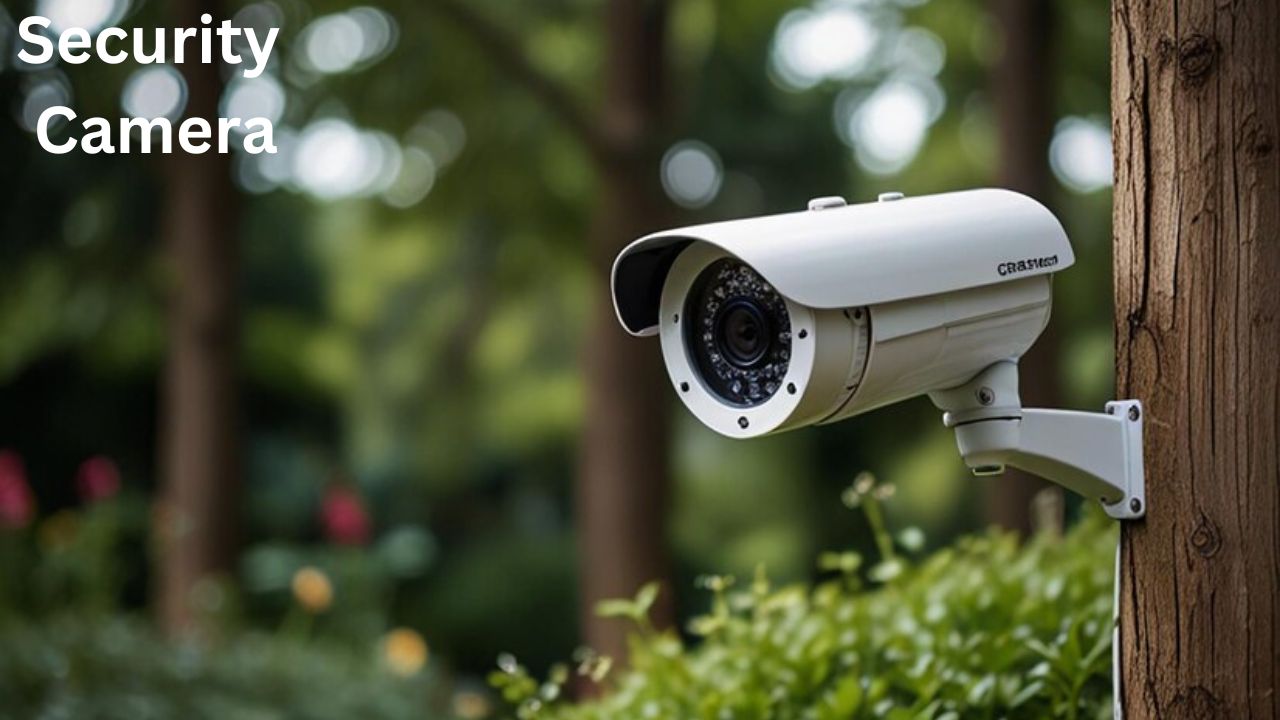The security camera industry has undergone significant growth over the past decade. With advances in technology, the industry continues to expand. Surveillance systems are now more intelligent, efficient, and accessible than ever before. This rapid development stems from increasing global demand for safety, better crime prevention, and smart home security solutions.
As homes, businesses, and public spaces prioritize safety, security cameras have become indispensable. Their presence helps deter crime, monitor activities, and provide valuable evidence when needed. The industry, driven by both technological innovation and consumer demand, shows no signs of slowing down.
Growth of the Security Camera Industry
The security camera industry has experienced a tremendous surge in demand worldwide. As urbanization increases, so does the need for effective surveillance. Cities are growing, and the population density creates higher risks for crime and security threats. Consequently, the demand for robust surveillance solutions has soared.
Additionally, businesses have also realized the importance of security systems in protecting their assets. Retail stores, banks, hospitals, and other establishments now rely on security cameras for monitoring and protecting their premises. This expansion across various sectors is further fueling the growth of the industry.
Technological Advances Driving Innovation
Innovations in technology have propelled the security camera industry into the digital age. Previously, cameras were analog, providing limited resolution and requiring complex setups. Now, most security cameras are digital and offer high-definition video quality. This shift enables better monitoring and enhances the clarity of captured footage.
The rise of IP cameras represents another major leap in surveillance. These cameras connect to networks, allowing remote access to live footage through smartphones, computers, or tablets. This development has made it easier for homeowners and businesses to monitor their properties in real-time, even when they are away.
Moreover, artificial intelligence (AI) has had a transformative impact on the industry. AI-powered cameras can detect suspicious activities, recognize faces, and even alert authorities in real time. These smart features enhance security, enabling faster response times in the event of a security breach.
The Role of Smart Security Solutions
Smart security solutions have revolutionized how individuals and businesses approach safety. Connected devices, such as cameras integrated with smart home systems, have grown increasingly popular. These devices offer convenience, allowing users to manage their security systems from anywhere with just a smartphone.
For instance, smart cameras can be connected to door locks, alarms, and lighting systems. This integration creates a comprehensive security network, providing better protection for homes and businesses. When motion is detected, the system can automatically send notifications to the user, trigger alarms, or activate lighting.
Additionally, cloud storage solutions have become an integral part of modern security systems. Instead of storing footage on-site, which can be vulnerable to damage or theft, many security cameras now upload their data to the cloud. This feature ensures that video evidence remains accessible and secure at all times.
Types of Security Cameras in the Market
The security camera industry offers a wide variety of options to suit different needs. Each type serves a specific purpose, and users can select cameras based on their unique requirements. The most popular options include:
- Dome Cameras: Known for their discreet appearance, dome cameras are ideal for indoor settings. Their sleek design makes them less noticeable while providing excellent coverage.
- Bullet Cameras: These cameras are typically used for outdoor surveillance. Their long, cylindrical shape allows them to monitor large areas, making them popular for businesses and residential properties.
- PTZ Cameras: PTZ (pan, tilt, zoom) cameras are versatile, offering users the ability to control their view remotely. They provide extensive coverage, making them suitable for large areas such as parking lots or industrial complexes.
- Wireless Cameras: These cameras have gained popularity due to their ease of installation. Wireless cameras can connect to Wi-Fi networks and transmit footage without the need for complicated wiring.
- IP Cameras: Internet Protocol (IP) cameras are networked devices that offer higher video quality than analog cameras. They allow users to access live footage remotely and store data on digital platforms.
Industry Leaders and Key Players
The security camera industry is competitive, with several key players dominating the market. Brands such as Hikvision, Dahua, Axis Communications, and Bosch have established themselves as leaders in the field. These companies continuously innovate, offering state-of-the-art solutions that push the boundaries of security technology.
Hikvision, for example, is renowned for its advanced AI-enabled cameras, which can recognize faces and detect unusual activities. Dahua focuses on providing high-quality surveillance equipment for both businesses and consumers, while Axis Communications specializes in network video solutions. Bosch Security Systems offers a wide range of cameras with cutting-edge technology, from thermal imaging to IP video surveillance.
Each of these companies plays a pivotal role in shaping the future of the security camera industry. Through innovation, they continue to set the standard for surveillance solutions worldwide.
Growing Demand for Residential Security Cameras
Residential security cameras have become more accessible due to affordable pricing and easy installation. Homeowners are now investing in security systems to protect their properties and loved ones. The rise of smart home technology has made it easier for individuals to manage and monitor these systems.
Many homeowners opt for DIY installation kits that include wireless cameras and smart doorbells. These devices allow users to see who is at their door, monitor the perimeter of their property, and store video evidence for later review. As crime rates fluctuate, homeowners increasingly rely on cameras for peace of mind.
The growing number of smart homes also drives the demand for security cameras. Consumers seek out systems that integrate seamlessly with their smart devices, allowing for control through voice commands or smartphone apps. These smart cameras provide flexibility and security, making them a popular choice for residential use.
Challenges Facing the Security Camera Industry
Despite its rapid growth, the security camera industry faces several challenges. One of the primary concerns is privacy. As cameras become more ubiquitous, individuals express concern over surveillance infringing on their personal privacy. This issue has led to debates over the balance between public safety and individual rights.
Another challenge is cybersecurity. As security cameras connect to networks and the internet, they become vulnerable to hacking. Cyberattacks can compromise the system and allow unauthorized access to footage. To address these concerns, manufacturers have increased their focus on enhancing cybersecurity measures.
Additionally, data storage is a growing issue. With the increasing use of high-definition cameras, the amount of footage generated is immense. Businesses and homeowners need secure, reliable storage solutions, leading to a rising demand for cloud-based options.
The Future of the Security Camera Industry
The future of the security camera industry looks promising, with new innovations on the horizon. Artificial intelligence will continue to play a central role in the development of smart cameras. We can expect to see even more sophisticated facial recognition, predictive analytics, and automated threat detection.
In addition, 5G technology will greatly enhance the capabilities of security cameras. With faster, more reliable connectivity, cameras will transmit high-quality video in real time with minimal lag. This improvement will boost the efficiency of surveillance systems, particularly for large organizations and smart cities.
Drone-based surveillance is also gaining traction. Drones equipped with cameras offer mobile, wide-area coverage that can monitor large spaces more effectively than fixed cameras. Industries such as construction, agriculture, and law enforcement will likely adopt drones as part of their security strategies.
Conclusion
The security camera industry continues to grow, driven by advancements in technology and rising demand for better security solutions. Innovations such as smart cameras, AI, and cloud-based storage are reshaping how we approach safety and surveillance. As the industry evolves, businesses, homeowners, and public institutions will benefit from these cutting-edge solutions.
While challenges such as privacy and cybersecurity remain, the future of the industry is bright. With continuous advancements, security cameras will only become more intelligent, efficient, and reliable in ensuring the safety of our homes and communities.
FAQs
How have AI and machine learning impacted the security camera industry?
AI has transformed the industry by enabling cameras to recognize faces, detect suspicious behavior, and send real-time alerts.
What are the advantages of cloud storage for security cameras?
Cloud storage ensures that footage remains accessible and secure, even if on-site storage is damaged or stolen.
Are wireless security cameras reliable for home use?
Yes, wireless cameras are reliable and easy to install, offering flexibility and real-time monitoring through smartphone apps.
What role do 5G and drones play in the future of surveillance?
5G improves the speed and reliability of video transmission, while drones offer mobile surveillance for large spaces.
How do smart security systems integrate with other devices in a smart home?
Smart cameras connect with door locks, alarms, and lighting systems, creating a comprehensive security network controlled via smartphone.
What are the leading brands in the security camera industry?
Key players include Hikvision, Dahua, Axis Communications, and Bosch, all known for their advanced surveillance solutions.











